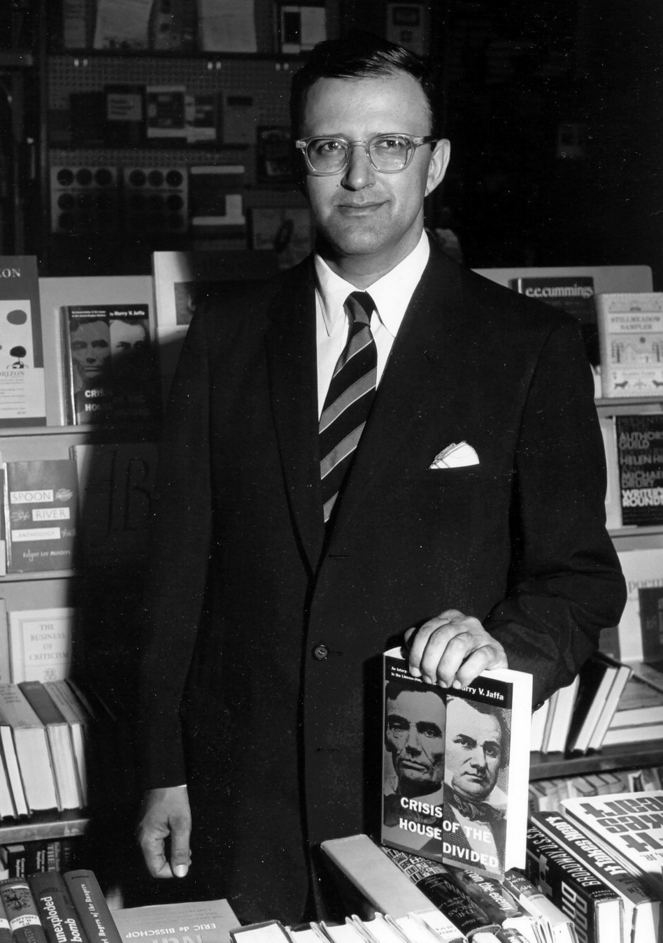2000s, The Real Abraham Lincoln: A Debate (2002), Rebuttal
Harry V. Jaffa: Frases en inglés
2000s, God Bless America (2008), The American Proposition
1990s, The Party of Lincoln vs. The Party of Bureaucrats (1996)
2000s, The Real Abraham Lincoln: A Debate (2002), The Right of Secession Is Not the Right of Revolution
2000s, The Real Abraham Lincoln: A Debate (2002), The South was a Closed Society
2000s, The Real Abraham Lincoln: A Debate (2002), The Right of Secession Is Not the Right of Revolution
2000s, Bush's Lincolnian Challenge (2002)
2010s, Interview with Eric Benson (2012)
2000s, The Real Abraham Lincoln: A Debate (2002), The Right of Secession Is Not the Right of Revolution
2000s, Bush's Lincolnian Challenge (2002)
2000s, God Bless America (2008), The American Proposition
2000s, The Real Abraham Lincoln: A Debate (2002), Q&A
Fuente: 2000s, A New Birth of Freedom: Abraham Lincoln and the Coming of the Civil War (2000), p. 249
2000s, The Real Abraham Lincoln: A Debate (2002), The South was a Closed Society
2000s, The Real Abraham Lincoln: A Debate (2002), The Right of Secession Is Not the Right of Revolution
“Karl Marx; the great enemy of human freedom.”
As quoted in "What Would Lincoln Think?" http://listenonrepeat.com/watch/?v=knpGZGYLrRM#What_Would_Lincoln_Think__Harry_Jaffa_on_The_American_Mind (20 February 2014), by Charles Kesler, The Claremont Institute
2010s, Interview with Charles Kesler (2014)
“[P]reservation of the Union was not a partisan policy.”
p. 254 https://web.archive.org/web/20160408021354/https://books.google.com/books?id=u1xgWBntGYIC&pg=PA254#v=onepage&q&f=false
2000s, A New Birth of Freedom: Abraham Lincoln and the Coming of the Civil War (2000)
2000s, The Real Abraham Lincoln: A Debate (2002), The Right of Secession Is Not the Right of Revolution
2000s, The Real Abraham Lincoln: A Debate (2002), The South was a Closed Society
2000s, The Real Abraham Lincoln: A Debate (2002), The Right of Secession Is Not the Right of Revolution
2000s, The Real Abraham Lincoln: A Debate (2002), Q&A
2000s, The Real Abraham Lincoln: A Debate (2002), The Lincoln-Douglas Debates
2000s, The Speech That Changed the World (2009)
Fuente: 2000s, A New Birth of Freedom: Abraham Lincoln and the Coming of the Civil War (2000), p. 151
2000s, The Real Abraham Lincoln: A Debate (2002), The Right of Secession Is Not the Right of Revolution
2000s, The Real Abraham Lincoln: A Debate (2002), Q&A
How to Think about the American Revolution: A Bicentennial Cerebration https://books.google.com/books?id=iKGGAAAAMAAJ (1978) p. 53
Also quoted in Vindicating the Founders https://books.google.com/books?id=DjlpSl-x1gMC, by Thomas G. West, p. 32
1970s
2000s, The Real Abraham Lincoln: A Debate (2002), Q&A
2000s, Is Diversity Good? (2003)
